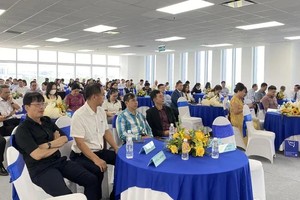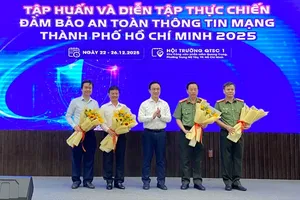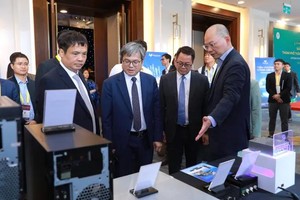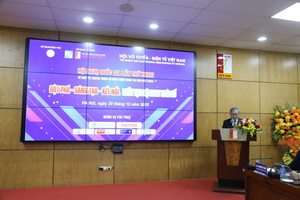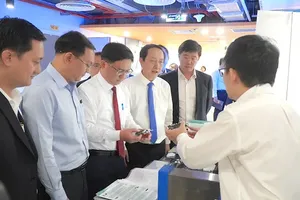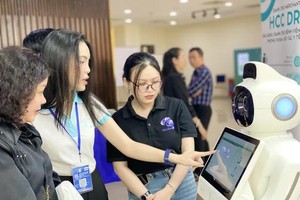
This initiative is designed to streamline the procedure for citizens, organizations, and individuals by reducing the reliance on traditional notarized vehicle transfer contracts. Accordingly, transactions are carried out online through VNeID’s level 2 electronic identification accounts via 4 steps:
- Step 1: The vehicle owner (seller) logs into the Public Service e-Portal of the Ministry of Public Security using their VNeID Level 2 credentials. They then select the vehicle ownership transfer utility to declare the necessary information for the vehicle revocation process, including details about the vehicle, any co-owners involved in the sale, and the buyer. The system automatically verifies vehicle characteristics and the personal information of all relevant parties before proceeding.
- Step 2: The Public Service e-Portal dispatches confirmation requests to the VNeID accounts of the seller, any co-owners, and the buyer for transaction authentication. Failure by any involved individual to confirm within 30 days will result in the transaction being canceled.
- Step 3: The Public Service e-Portal transmits information to relevant individuals to advance the vehicle revocation procedure. It also sends information to the vehicle registration system to execute the revocation process and to the electronic tax system for the collection of the registration fee (stamp duty).
- Step 4: The buyer settles the registration fee with the tax authority, submits required declarations, and completes the vehicle title transfer process. Data generated during the revocation and fee payment stages is automatically reused, eliminating the need for individuals to resubmit previously provided information. The vehicle registration system then notifies the Public Service e-Portal upon successful completion of the title transfer registration.
Eligibility for this pilot is restricted to vehicle owners (sellers), co-owners, and buyers who are individuals possessing a VNeID Level 2 account and have their permanent residence registered in HCMC.
It is strictly mandated that proxy declarations are not accepted; all procedures must be performed by the principal parties. Both the vehicle owner (seller) and buyer must authenticate their identities. Furthermore, if the vehicle owner (seller) is married, authentication must be jointly verified using the VNeID accounts of both spouses (in accordance with Clause 2, Article 25 of the Law on Marriage and Family 2014) on the interactive electronic form.
Citizens are encouraged to proactively reach out to their local commune, ward, or town police for guidance on setting up VNeID Level 2 and ensuring their marital status in the National Database on Population is current, particularly for those recently married or divorced, thereby ensuring personal data integrity and prevalence.
In related news, The HCMC Public Security Department’s Traffic Police Division announced that on May 14, the unit is conducting its first driving license testing session since assuming responsibility for testing and issuing licenses.
This initial round involves 500 candidates seeking licenses across classes A1, B, and C, with tests taking place at the Hoc Mon Driving Test Center and Tan Phu Driving Test Center. All test components are being conducted in strict compliance with the latest process regulations stipulated by the Ministry of Public Security.
Hanoi Public Service Center goes digital for queue numbers
Effective yesterday, May 13, Branch No.1 of the Hanoi Public Administration Service Center transitioned to a new system, discontinuing the issuance and use of on-site physical queue numbers for individuals and organizations seeking administrative services.
This move aims to significantly enhance service delivery and minimize queuing time. It also implements measures to address the previous issue of citizens queuing and holding spots directly from the early morning, which often contributed to public disorder.
Under this new system, citizens and organizations intending to submit applications, collect results, or process administrative matters are now instructed to obtain their queue numbers online via the iHanoi application – dubbed the “digital citizen of the capital” – before their in-person visit.
The process is straightforward:
- Download and access the iHanoi application using your VNeID account.
- Navigate to the “Public Services” utility, select the “Appointment” feature, then choose the specific “Center branch” and “Field of service” required.
- The system will automatically issue an online queue number to the citizen.
The Hanoi Public Administration Service Center clarifies that obtaining online numbers for administrative services mandates authentication using a chip-attached citizen ID card or a personal identification number. This strict requirement ensures a policy of one number per person, per service, per day, aimed at promoting fairness and preventing misuse of the system.
